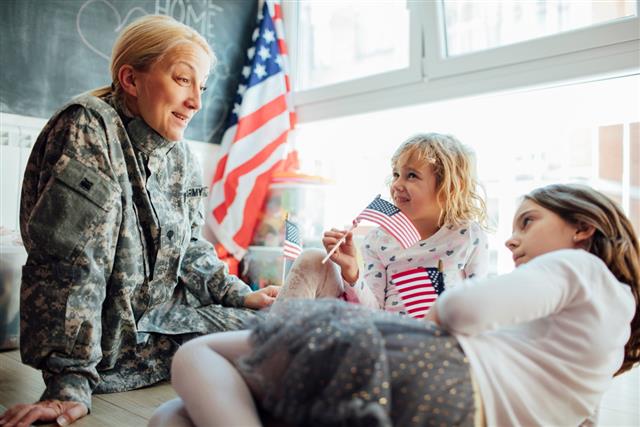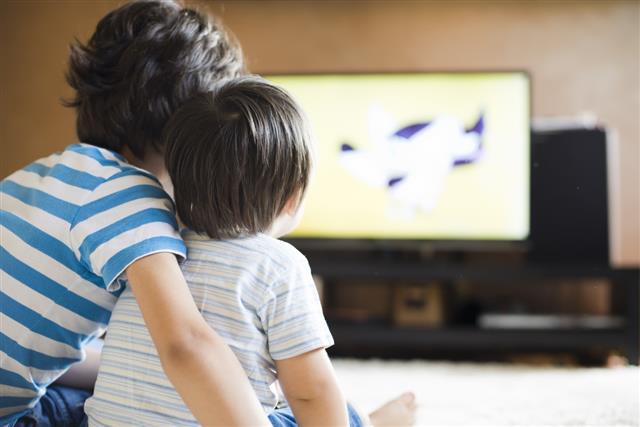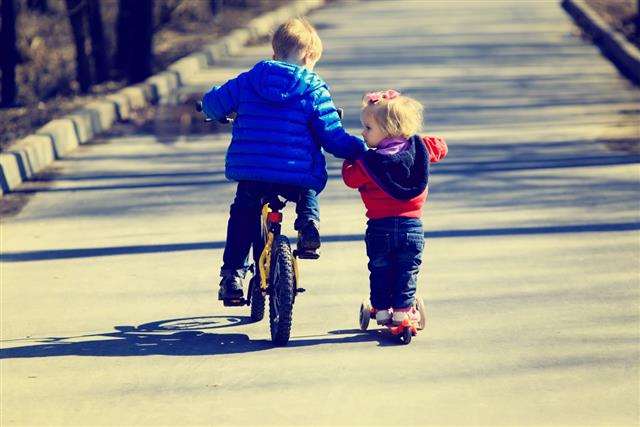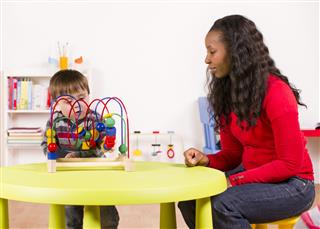
Anticipatory socialization is the sum of our present as well as future actions, based on what we have observed and learned throughout our lives and through the lives of others.
Anticipatory socialization is the process by which we as humans adapt to innate futuristic needs and expectations through role rehearsals. Which in simple layman’s language means that we take on roles and bring about changes in our behavior and thought process, according to the people we interact with, the relationships we develop, the place where we seek employment, or are employed. These variations in our behavior occur in tune with what we assimilate through observation. This innate observance is an integral part of our personality, and begins from the age of comprehension.
Areas of Anticipatory Socialization Processes
☞ Family
The initial set of norms, attitude and approach towards life, are all gained through the interpersonal relationships we share with our family members. Our parents and other adult members teach us according to their beliefs. Which includes teaching us the difference between good and bad, which may in its due course be different for each family. Accordingly, how the child grows up to become, has his family’s pivotal roles to play.
Since a chunk of the formative years of a human are spent under the protective guardianship of parents or other adults, the child learns to understand the nuances of interpersonal relationships when it comes to family. This sets the basis for the child to prepare for his or her own family, in due course of their own life cycle. Which is perhaps why it is often stated, that people treat their family accordingly to how they were treated as kids. Of course, drastic variations can occur, which may have positive or negative consequences.
For instance: An infant will observe and learn to recognize his parents, and differentiate them from strangers. Similarly, the child will learn to treat his parents in a different fashion as compared to others. When this child has a sibling sister, in the future, the child will in his own way, take on certain parental roles, and perform tasks such as cleaning his sister’s face, hugging her and being protective towards her. These acts have been assimilated and observed through personal experiences as well as by observing his parents, and how they look after the new baby sister. Anticipatory socialization has many diverse arenas, all of which play their individual roles in affecting our future thoughts, ideologies, behavior and actions.
☞ School
Children learn to interact with individuals outside the family circle, by actively or passively participating in the socializing process through school activities. Children learn how to treat others with respect, learn to understand human emotions and actions, they learn to develop their defenses against harmful behavior, etc. At school, the child’s brain is like an open book or a sponge, which will readily absorb information. It is the duty of the teachers to make sure that what the children are being taught and the way they are being treated is beneficial and healthy, for their future.
For instance: A child will learn to take orders from a teacher, and will accordingly learn to read and write. While he is at school, he will make friends and learn to stay away from a bully. He will observe how the other children are behaving and act accordingly, which is why when one child in pre-school starts acting all cranky, accordingly, most of the other children will also start crying or acting irritated. Similarly, if a child is taught or made to develop his interest in arts or history, the child will remember this information and the feeling in later years. Accordingly, the child could grow into an art or history enthusiast, or may even take it up as a proper profession.
☞ Media
Apart from what we assimilate from family, friends, and through educational institutions, much is assimilated through the various modes of media. Which is why, it is very important to ensure that what our children watch and learn through the TV, Internet, magazines and cell phones, is guarded against unnecessary, irrelevant and unethical subjects. A moral decorum must be instilled and encouraged in our children, so that they can differentiate between good information vs bad information..
For instance: This type of socialization occurs through media, because it influences all of us, by changing the way we dress, speak, behave, and even think. How we let ourselves be swayed, depends a lot on our past ideologies and principles.
☞ Personal Relationships
As adults, we begin to develop our interpersonal relationship with the opposite sex or a gender we are attracted to. In such situations, we treat our companions according to what we have assimilated by observing our parents, other couples, friends, and through media induced interactions. The reason why individuals have varied opinions and approach towards a relationship, is because of the relationship they have observed or experienced in the past or in general terms.
For instance: Someone who is from a broken family, will not truly believe in the foundation of marriage, and will have a pessimistic approach towards relationships. On the contrary, the same individual may grow up believing that their own relationship may work out, if a healthy relationship is developed, and all the observed mistakes are not repeated.
☞ Organizational Behavior
An aspiring candidate will behave in a rather professional manner, in order to look suitable for the job. He or she will change the way they interact with the members of the organization, and will treat them with respect.
For instance: These candidates will try to bring focus to their positive aspects, which will help improve their chances of employment. Similarly, an employee will take on the roles, which will increase his or her credibility in the organization, and increase their chances of promotions. An employer will also behave according to what he or she believes is the best method of doing so. They may either use confidence boosting measures or fear tactics, to keep the employees under check. Whichever option the employer chooses, will be based on what he or she has observed and deemed as the most successful one.
☞ Gender Equilibrium
The contemporary roles played by each gender has undergone a drastic change over generations, making it possible for men and women to take up jobs and roles, which were once gender restricted.
For instance: Women were not allowed to own any business or be deemed as corporate CEOs, but now it has become a fairly common aspect of our daily lives. Similarly, it was absurd to have the father stay at home in order to look after the children. However today it seems an ideal and logical option, when the other spouse cannot forsake her job or the income is not expendable.
☞ Total Institutionalization
The term, ‘total institutions’ was coined by Erving Goffman in 1961, who intended to use the term for institutions such as the military, prisons, convents and hospitals. The reason being that, these institutions, despite being isolated, end up affecting the behavioral tendencies of it subjects.
For instance: A soldier will behave according to how he or she has been trained, and will execute his task unlike a civilian. Their training and decorum justifies the way they think, behave and act, according to different situations. A soldier who has recently returned from base camp, will feel awkward around the very civilians he or she has been friends with. There is a dramatic change in the very approach and thought process, with which they lead their military lives. Similar effects can be observed in a convent, wherein the teachings and the way of life demarcates the behavior of the subjects, and makes them different from the general public.
Anticipatory socialization impacts every aspect of our lives, and who we become as individuals has a lot to do with what we learn from our lives, and what we learn from the lives of others too.














